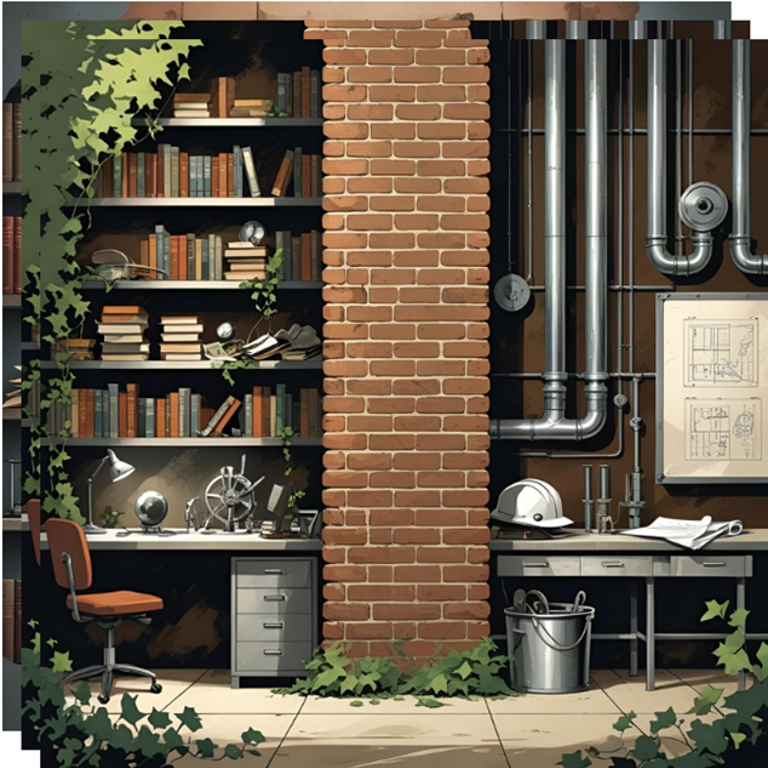Climate change is here. We’re in trouble. Are we asking all the right questions?
Amongst all the noise, disinformation, uncertainty and distractions out there, one thing is hopefully clear to all – we need to make sure that anything we do to protect ourselves against future climate is well targeted and that we truly understand the value of these investments. I believe that there could also be a consensus that life and climate in the Year 2051 will be very similar to that in 2050 and that this is only about 25 years away. What about 2060, 2070 and so on? Where’s the plan? Is it even possible to generate an impactful one that is appropriately funded over long periods?
Net zero is about, in many ways, becoming more resource efficient. This, especially when supported by new technologies and methodologies (growth through development) is again hard to argue against as waste is just waste. Net zero initiatives are primarily focused on reducing greenhouse gas emissions (climate change mitigation) but not on how we reduce harm in a changed future climate (climate change adaptation). The Paris Agreement makes clear distinctions between these separate requirements and the IPCC discusses the need for integrated approaches. This is not happening, especially as co-benefits should ideally be fully quantified before using to drive the decision-making process. As a result, current cost-benefit assessments are significantly constrained.
How we best frame how we move forward is fraught with challenges including highly polarised narratives and mindsets. There is a natural inertia amongst people as they don’t tend to like changing the way they should think and work. They may not currently have the skills to do so. In reality and compounding the issue, is that many potential solutions could be categorised as wicked problems which includes dealing with trade-offs, shifting conditions and absence of clear solutions while operating within complex multi-layered systems, e.g., societal, environmental, ecological, political and many more. There are too few people with the necessary complex skills sets to direct and disseminate what is needed and so the ability to influence the direction and associated needs are severely constrained. How can we consider all of this and any associated transition pains, e.g. fossil fuels to clean energy, if we’re to meet future challenges?
Better collaboration between academia and industry is one way that we can meet these challenges. Industry needs to be more influential on research direction providing better questions, direct support and a clearer route to impact. Our design & engineering institutions need to be more influential on policies (where needed) with a greater long-term performance focus in addition to focusing on baseline compliance requirements – the ‘low bar’. Do we need to look again how we prioritise surfaces within our design process? We know that we need to ‘break the silos’ and start working more holistically. How might we do this whilst increasing understanding of real, unconstrained cost and value? Are we correctly balanced in our efforts to tackle these challenges, such as focusing on urban heat island effect in the absence of urban cool island potential?
The science and not the politics, driven by societal needs should be leading the way but there are significant barriers to overcome. Time is very short and so whatever we decide to do we need to do at scale and pace but, it is argued, that we should in the near term take a holistic view on what we, as a community, are doing and why we are doing it. How do we fast-track systems design thinking and processes into the way that we work? Some key changes may not end up as being highly disruptive to our current working practices but they could deliver significant benefits in our uncertain future.
Darren Woolf (RCG Chair) gave a short presentation ‘A Wicked Collaboration: What we’re NOT talking about’ to a ‘Bridging Practice and Academia’ event at the University of Hertfordshire on 4th July 2025 and then a ‘Future Fit Global Consortium Workshop’ at London South Bank University on 25th July 2025 – see recording link. Thank you to Qin Lu and Hua Zhong for their respective invitations. This presentation was then extended with ‘What we (RCG-UKUEQ) ARE talking about’ for a ‘Towards Resilient and Sustainable Cities and Communities’ event at De Montfort University on 4th September 2025 – see presentation link for the extended version of the presentation. Thank you to Subhes Bhattacharyya for his invitation.
RCG-UKUEQ is a group made up of the CIBSE Resilient Cities Group and UK Urban Environmental Quality partnership – a collaboration between RCG and the UK Wind Engineering Society. Links are here - RCG, UKUEQ and WES.
Join the conversation
Follow the Resilient Cities Group on LinkedIn to stay updated on climate resilient discussions, collaborative research and upcoming events.
